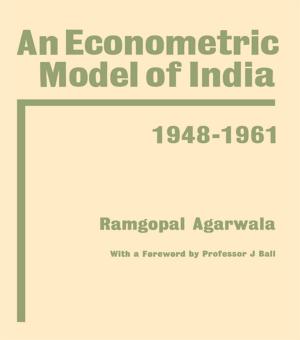Race and Intelligence
Separating Science From Myth
Nonfiction, Reference & Language, Education & Teaching, Educational Theory, Testing & Measurement| Author: | ISBN: | 9781135651787 | |
| Publisher: | Taylor and Francis | Publication: | May 13, 2013 |
| Imprint: | Routledge | Language: | English |
| Author: | |
| ISBN: | 9781135651787 |
| Publisher: | Taylor and Francis |
| Publication: | May 13, 2013 |
| Imprint: | Routledge |
| Language: | English |
In recent years, reported racial disparities in IQ scores have been the subject of raging debates in the behavioral and social sciences and education. What can be made of these test results in the context of current scientific knowledge about human evolution and cognition? Unfortunately, discussion of these issues has tended to generate more heat than light.
Now, the distinguished authors of this book offer powerful new illumination. Representing a range of disciplines--psychology, anthropology, biology, economics, history, philosophy, sociology, and statistics--the authors review the concept of race and then the concept of intelligence. Presenting a wide range of findings, they put the experience of the United States--so frequently the only focus of attention--in global perspective. They also show that the human species has no "races" in the biological sense (though cultures have a variety of folk concepts of "race"), that there is no single form of intelligence, and that formal education helps individuals to develop a variety of cognitive abilities. Race and Intelligence offers the most comprehensive and definitive response thus far to claims of innate differences in intelligence among races.
In recent years, reported racial disparities in IQ scores have been the subject of raging debates in the behavioral and social sciences and education. What can be made of these test results in the context of current scientific knowledge about human evolution and cognition? Unfortunately, discussion of these issues has tended to generate more heat than light.
Now, the distinguished authors of this book offer powerful new illumination. Representing a range of disciplines--psychology, anthropology, biology, economics, history, philosophy, sociology, and statistics--the authors review the concept of race and then the concept of intelligence. Presenting a wide range of findings, they put the experience of the United States--so frequently the only focus of attention--in global perspective. They also show that the human species has no "races" in the biological sense (though cultures have a variety of folk concepts of "race"), that there is no single form of intelligence, and that formal education helps individuals to develop a variety of cognitive abilities. Race and Intelligence offers the most comprehensive and definitive response thus far to claims of innate differences in intelligence among races.















